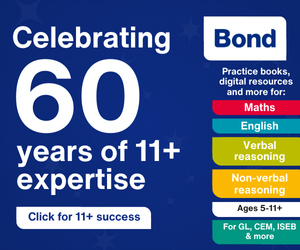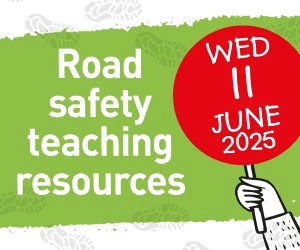Primary Times - the definitive what’s on and where to go family guide of activities and events for children of primary school age. Things to do with your kids during the school holidays including arts and craft activities, music and theatre for children, parties, competitions, days out, and family attractions along with term time drama schools, dance classes, after school clubs and sports activities. Things to do at a place near you!
Advice on navigating the transition to parenthood of two young children
 Maybe when you started your family, you’d planned to have several children, but the chaos of life and unexpected challenges have caused you to the brakes. Or perhaps you’d always envisioned a single-child household, but now you’re having second thoughts.
Maybe when you started your family, you’d planned to have several children, but the chaos of life and unexpected challenges have caused you to the brakes. Or perhaps you’d always envisioned a single-child household, but now you’re having second thoughts.
The decision of whether or not to have a second child is something that countless parents wrestle with, and obviously isn’t something that should be taken lightly. Now that you have one child in primary school, you’ll have a much better understanding of what it means to be a parent in those early years. But how will bringing another child into your family look different? How will it be the same?
In this post, we’ll run through some of the most important things to think about when you’re considering whether or not to have a second child, and how you can approach them to ensure you make the best decision possible for your family.
Your Finances
Though affordability certainly isn’t the most important factor when you’re deciding to have a child, it’s certainly not one you can afford to ignore.
Ideally, parents considering another child need to be earning more than they spend, with minimal debt, some savings or investments, and a separate emergency fund in place. This is a tall order for many parents, especially in the current state of the economy. However, if your personal finances are a long way off of this picture of health, it’s important to consider how difficult these challenges will be to overcome with another child in your household.
Aside from the expenses tied up in the pregnancy and birth, you’ll need to project additional costs in the way of nappies, formula, and food, as well as childcare. This is all before thinking about the additional costs of raising a child that will develop as your baby grows.
The experience of being a parent is priceless, but even so, it’s important to get a good idea of what having a child means for you financially. By researching your localised cost of living, leveraging free resources like Money Helper’s Baby Costs Calculator, and talking to your fellow parents about their experiences, you’ll be able to form a solid budget and avoid nasty surprises.
Your Health
Pregnancy isn’t easy on anyone’s body. However, if you’re considering having another child, it’s always important to re-familiarise yourself with some of the key health factors that can come into play when you’re expecting.
You’re at least a few years older than you were when you had your first child, and like many parents, your weight may have fluctuated with the stress of caring for a family. Since your last pregnancy, you might have also become aware of new conditions that could complicate having another child, such as diabetes or high blood pressure.
Furthermore, it’s important to consider the psychological consequences that may be on the horizon for you and your partner if you’re set on having a second child. If you know you’re at risk of postpartum depression (PPD), general depression and anxiety, or other mental conditions that can arise from high-stress situations, it may be a good idea to put your plans on hold and seek support and treatment before you do anything else.
Even seemingly smaller lifestyle factors and habits can make a considerable amount of difference to your fertility, and how easy or hard your pregnancy is on your body. As this handy guide from TFP Fertility explains, “many lifestyle factors including smoking, alcohol, BMI, certain drugs, caffeine consumption, nutrition and stress can impact your current and future fertility”.
Though your decision to grow your family shouldn’t live or die based on a doctor’s approval, getting educated on the medical consensus about lifestyle and fertility can help ease your anxieties and prepare you for the road ahead.
Your Feelings, and Your Family’s
When considering whether to have another child, remember that you’re deciding whether or not to go through all the same beats of your previous experience as a parent. That includes all the moments that made you feel overwhelmed with joy, as well as the ones that made you feel like pulling your hair out with stress.
When you consider this emotional rollercoaster, and contextualise it within any differences between your life now and your life then, you may find that you need a little more stability in your corner before you can really feel good about having a second child.
Of course, it’s also essential to have an honest conversation with your partner, and find out how they feel about bringing a second child into your life. The process of trying for a baby, or even preparing to do so, can be extremely strenuous on a relationship if you’re not on the same page mentally and emotionally. Topics like this can feel hard to broach for many people, but it’s important to remember that the more honest you can be in your communication, the easier you’ll find it to arrive at a decision that’s right for both of you.
Amongst all these complex, grown-up conversations, it’s important not to forget the other person this is going to affect tremendously: your first child. It’s easy to laugh off sibling rivalry as something childish and trivial. However, just like you and your partner, your child is going to have strong feelings about such a big change in the household dynamics, even if they’re too young to express them.
The prospect of a new brother or sister can make a child very anxious, so make sure you’re handling it with sensitivity, and making sure your child isn’t left out of the conversation or made to feel unnecessarily nervous about what the future holds.
In the words of clinical psychologist Mandi Silverman, “The key thing here is that parents need to indicate that this is a positive thing for a family … It’s a change, and change — whether it’s good or bad — is something that takes time to get used to.”
Taking the Next Steps…
No matter how much you learn from your experience with your first child, deciding whether to bring a new life into the world is never easy.
However, by focussing on the most relevant factors and considering each one methodically, you’ll find it much easier to get a clearer view of what lies ahead and make a decision that’s best for everyone.
Article written by Kate Sheppard





